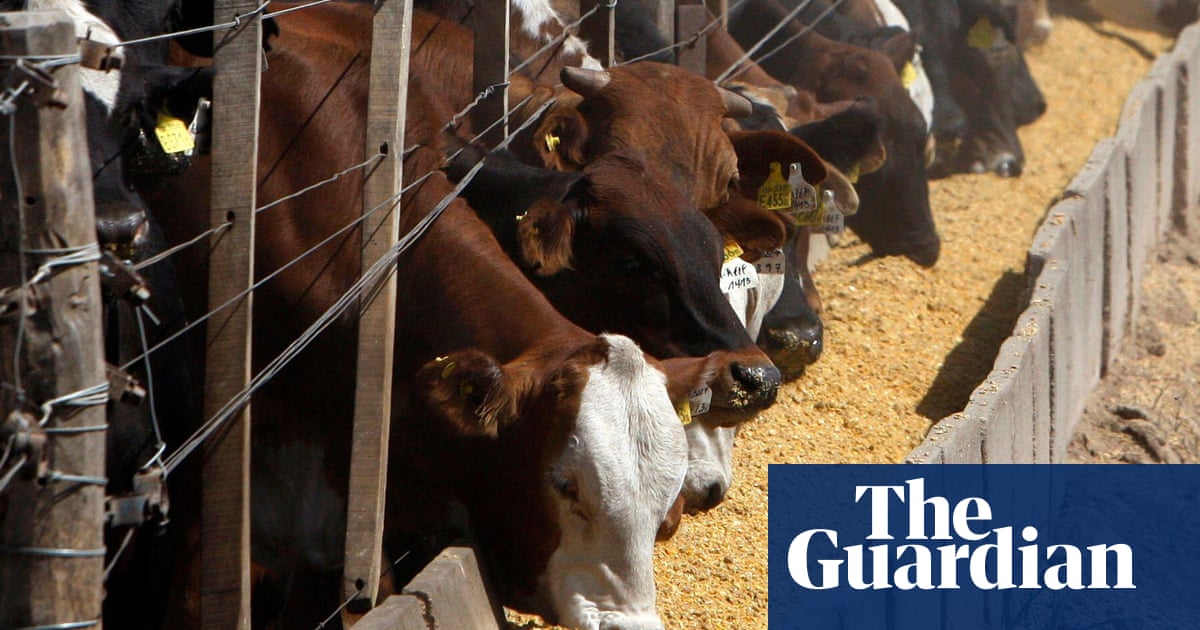
Britons have cut their meat consumption by 17% over the past decade but will need to double these efforts if they are to meet targets for healthy diets and sustainable food production set out in the national food strategy earlier this year.
Meat production is a major contributor to global heating and land degradation, while eating lots of red and processed meat has been linked to a greater risk of developing cardiovascular disease, type 2 diabetes and certain types of cancer.
For these reasons, the government-commissioned national food strategy for England recently recommended that people try to cut their meat consumption by about 30% within the next decade.
To understand how much meat people in the UK are currently eating, Cristina Stewart, a health behaviours researcher at the University of Oxford, and colleagues turned to dietary data recorded in the National Diet and Nutrition Survey. This annual exercise involves asking a nationally representative sample of the population to keep a food diary for four consecutive days.
The analysis, published in the journal Lancet Planetary Health, found that between 2008-9 and 2018-19 participants’ average meat consumption decreased from about 103g per person a day to 86g, a reduction of about 17g or 17%. This is equivalent to eating roughly two and a half fewer pork sausages each week.
There was an absolute reduction of 13.7g of red meat and 7g processed meat, and a 3.2g increase in white meat consumption.
Stewart said: “I think the reductions that we’re seeing are positive, but we’re moving pretty slowly, and if we continue reducing our intake at the same rate, we’re not really going to be reaching these dietary targets.”
Although the environmental impact of white meat is lower than red meat’s, plant-based sources of protein have a lower impact still. “We’re hoping that this analysis, which helps us better understand meat consumption trends and patterns, could help to tailor public health policies and behavioural interventions to try and accelerate that reduction and meet those targets,” Stewart added.
Victoria Taylor, senior dietitian at the British Heart Foundation, said: “While it’s encouraging to see more people are starting to eat less red and processed meat, we know that some people are still eating more than the recommended maximum of 70g per day, putting them at greater risk of developing heart and circulatory diseases.
“We need to look beyond meat to benefit from the full range of protein sources available to us. Including plant-based proteins like beans, lentils, nuts and seeds, or using these to bulk out meat dishes can be a healthy way to cut down on the amount of red and processed meat you are eating.”
The team also looked at differences in total meat consumption between different subgroups of the population, finding that this was higher among white participants compared with minority ethnic groups, regardless of household income.
“That was quite surprising because a lot of literature suggests that people from lower socioeconomic status groups consume more meat … and more red and processed meat,” said Stewart.
Another surprise was that people born in the 1980s and 1990s were the highest meat consumers, and those born after 1999 were the only subgroup to have increased their consumption over time.
Stewart said: “We’ve seen from various surveys that younger groups consider the environment and climate change to be more important, and they tend to be more interested in reducing meat consumption. People in that subgroup were 19 years and younger, so it could be that for the first few years of the survey, what they were eating was reflective of their household, rather than their preferences as individuals. Even so, it was a surprise.”











